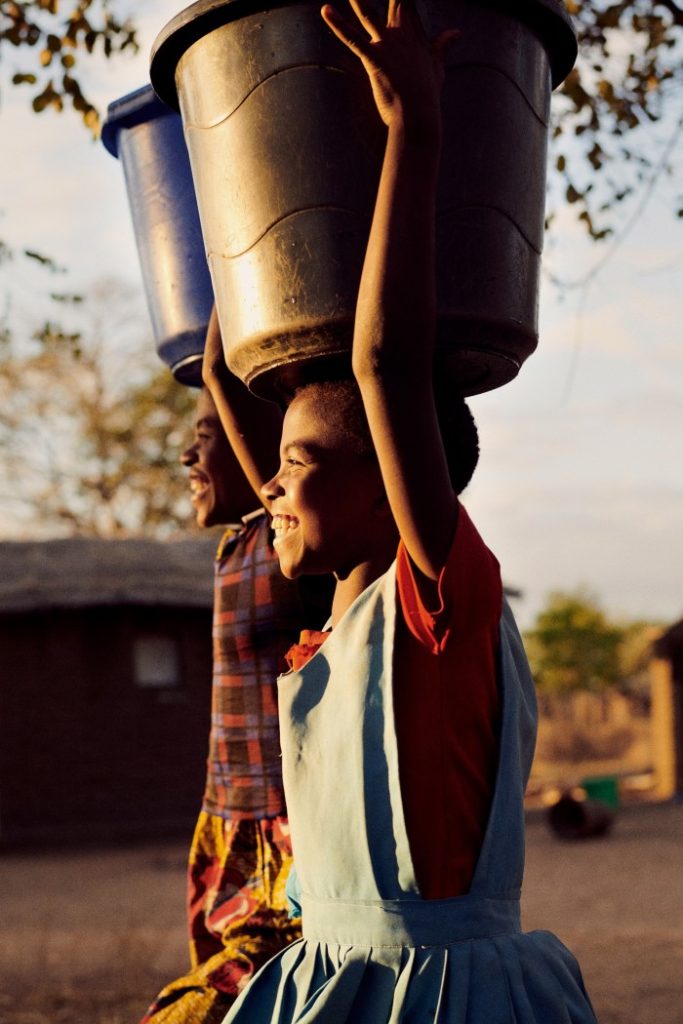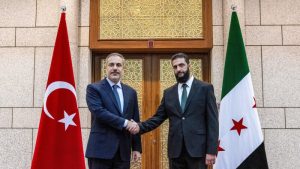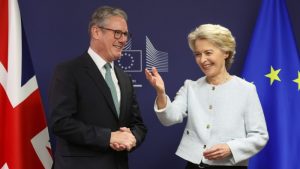‘A WaterAid tap changed my life’

Unlock the Editor’s Digest for free
Roula Khalaf, Editor of the FT, selects her favourite stories in this weekly newsletter.
Almost one in 10 people worldwide still doesn’t have easy access to clean water. And women and girls often “overwhelmingly bear the brunt of this because they are mainly responsible for fetching the water for the family”, says Jennie York of WaterAid UK, a charity that has been bringing clean water and sanitation to communities around the world since 1981.
In drought-hit Malawi – a focus for WaterAid’s winter campaign – water-fetching takes an average of 55 minutes per day. “Which means women are less able to work and girls spend less time studying and playing,” says York. Journeying over long distances, often in remote locations, women are vulnerable to physical and sexual assault. What water they do get is often not safe to drink; Malawi is still recovering from the cholera outbreak of the past two years, the deadliest in its history.

Elisey, one of the key voices in WaterAid’s winter campaign, used to wake at 4am to collect water. She would go with a group of women for safety. “Bandits would often hide there, and when someone was coming, they’d just grab the person and hack them with a panga knife, hoping to find something to steal,” she says. When the WaterAid tap was installed in her community, “it changed my life”.
WaterAid’s target is £1.8mn: £80,000 of that will help fund a new solar-powered water system to supply nine villages in the area of Chinganji (where fewer than half of children have clean water at home) – almost 2,000 people. It will make it possible to install decent lavatories and washing facilities in Chinganji’s local primary school – measures that are key to providing a safe space for girls to maintain good hygiene. Merifa, 15, has already benefited from the charity’s work: “All I remember is the excitement that there was at school. People were crowding around the taps, and opening and closing them because they weren’t used to seeing water like that – we were just too excited. As a result, our grades have improved. We’ve seen a big difference now that we have tap water near us because we’re spending most of our time studying instead of going to draw water. We have time to actually be in class.”

Her schoolfriend, Rachel, lives in a village that doesn’t have clean water. “I get water from a shallow well near my house but it’s dirty. I don’t feel safe drinking it.” WaterAid’s ambition is to fix that. The charity – which currently works in 22 countries – has brought clean water and proper lavatories to 29 million people, and its ultimate goal is to bring these to everyone, everywhere in the world.
Individual donations – which account for more than half of WaterAid funding – are vital, says York, “as they can be used without restrictions. That means we can respond quickly and flexibly where the need is greatest.” Just £5.26 a month, for 12 months, “could help pay for three taps to bring life-changing clean water to more children like Merifa”.
@alicelascelles
#WaterAid #tap #changed #life





